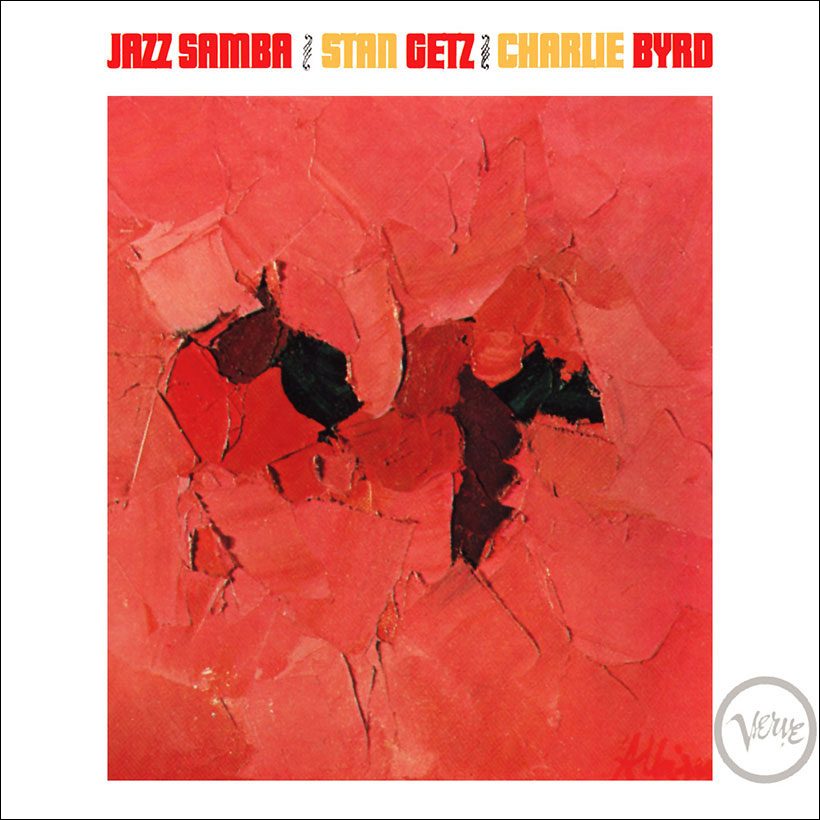How Stan Getz And Jazz Samba Conquered The World
Charlie Byrd was sent on a diplomatic tour of South America, but what he brought back to America was more important.

In the spring of 1961, the US Government was instrumental in changing the face of modern jazz. Guitarist Charlie Byrd was sent on a diplomatic tour of South America, with the idea that exporting culture could be a positive political tool. In this case, however, it was more a case of what Byrd brought back to America: Jazz Samba.
Upon his return, Byrd met Stan Getz at the Showboat Lounge in Washington DC and later, at his home, played him some bossa nova records by João Gilberto and Antonio Carlos Jobim that he had bought in Brazil. The next step was to convince Creed Taylor who had taken over the running of Verve Records from Norman Granz that making a Latin-influenced record was a good idea. Taylor, anxious to make his mark, saw merit in the idea and in October 1961 Getz and Byrd did some initial jazz samba recordings, but these remained unissued.
Listen to Jazz Samba right now.
However, on the day before Valentine’s in 1962, Charlie’s guitar and bass playing brother, Gene Byrd, Keter Betts on bass, drummer Buddy Deppenschmidt, and Bill Reinchenbach on percussion joined Charlie and Stan Getz at All Souls Unitarian Church in Washington, DC to take advantage of the excellent acoustics. Betts and Deppenschmidt had been to South America with Byrd, so they were well versed in the sound and most importantly the rhythms of Brazil. As Creed Taylor said shortly afterward, “It was Charlie Byrd’s idea and none of us expected it to be this big.”
The tracks they recorded were released as Jazz Samba in April 1962 and in the middle of September it entered Billboard’s pop album chart and on March 9, 1963, it made No. 1; and while it spent just a week at the top it spent a total of 70 weeks on the bestseller list, this truly was a groundbreaking record. It made bossa nova the coolest music on earth. In November 1962, one of the tracks on the album, “Desafinado” also made No. 15 on the singles chart, which did a lot to help sell the album.
It’s interesting to note that Dizzy Gillespie, always a champion of Latin jazz played “Desafinado” at the Monterey Jazz Festival in 1961, perhaps because Dizzy had also toured Brazil in the summer of 1961 – Brazilian rhythms were in the air, and they’ve never left us.
Even before Jazz Samba entered the charts Taylor put Getz with the Gary McFarland Orchestra to record Big Band Bossa Nova and Cal Tjader cut “Weeping Bossa Nova (Choro E Batuque).” Before the year was out Ella Fitzgerald recorded “Stardust Bossa Nova” and on New Year’s Eve the album, Luiz Bonfa Plays And Sings Bossa Nova that features the guitarist with Brazilian pianist, Oscar Castro Neves was recorded. Big Band Bossa Nova made No. 13 on the Billboard chart – Bossa Nova was big.
On February 27, 1963, Stan Getz recorded Jazz Samba Encore, but with none of the musicians from the original, this album featured Antonio Carlos Jobim on piano and guitar along with Luiz Bonfa; this was far less successful than the first album, which is often the way with a phenomenon, but for many people, it is a more satisfying album.













Laine
October 4, 2015 at 2:40 am
And then there was Tippie and the Clovers’ “Bossa Nova Baby” in 1961/62. R&B crossover.
Youtube: https://youtu.be/uDoo9aRC0VA
Jamie
March 9, 2016 at 11:46 pm
Both Jazz Samba and the Encore are great albums, but I seem to prefer Jazz Samba Encore.
Rob
February 13, 2017 at 5:32 pm
There’s apparently a whole fascinating backstory to that Washington DC recording session. Apparently, the album’s tracks had been recorded, but both Charlie and Stan were deeply dissatisfied by the original drummer’s ability to adopt to the Bossa Nova’s idiosyncratic beats. The DC session was a hastily arranged make up date that saw Stan fly down on the NYC to DC shuttle in the morning and return in the evening.
Patrick K Riley
February 14, 2017 at 6:42 pm
Ah, SI!! And at age 12, I, too.. caught the “Wave.” Between Getz, Jobim, Mendez… bought up every Creed Taylor I could. Significantly formed my listening, if not my playing (piano) life. Love for the Brazilien rhythms, cord structure… e la idioma Portugues, tamben! Live on!! !Obrigado!!
Rich
January 25, 2018 at 3:03 am
Concurrently, Vince Guaraldi also recorded his excellent “Jazz Impressions of Black Orpheus” (side one of which was all bossa nova). Although his hit single, “Cast Your Fate to the Wind”, wasn’t bossa nova, it helped sell the album very nicely!
Kerry P Carnohan
November 12, 2019 at 1:00 am
…Laurindo Almeida .